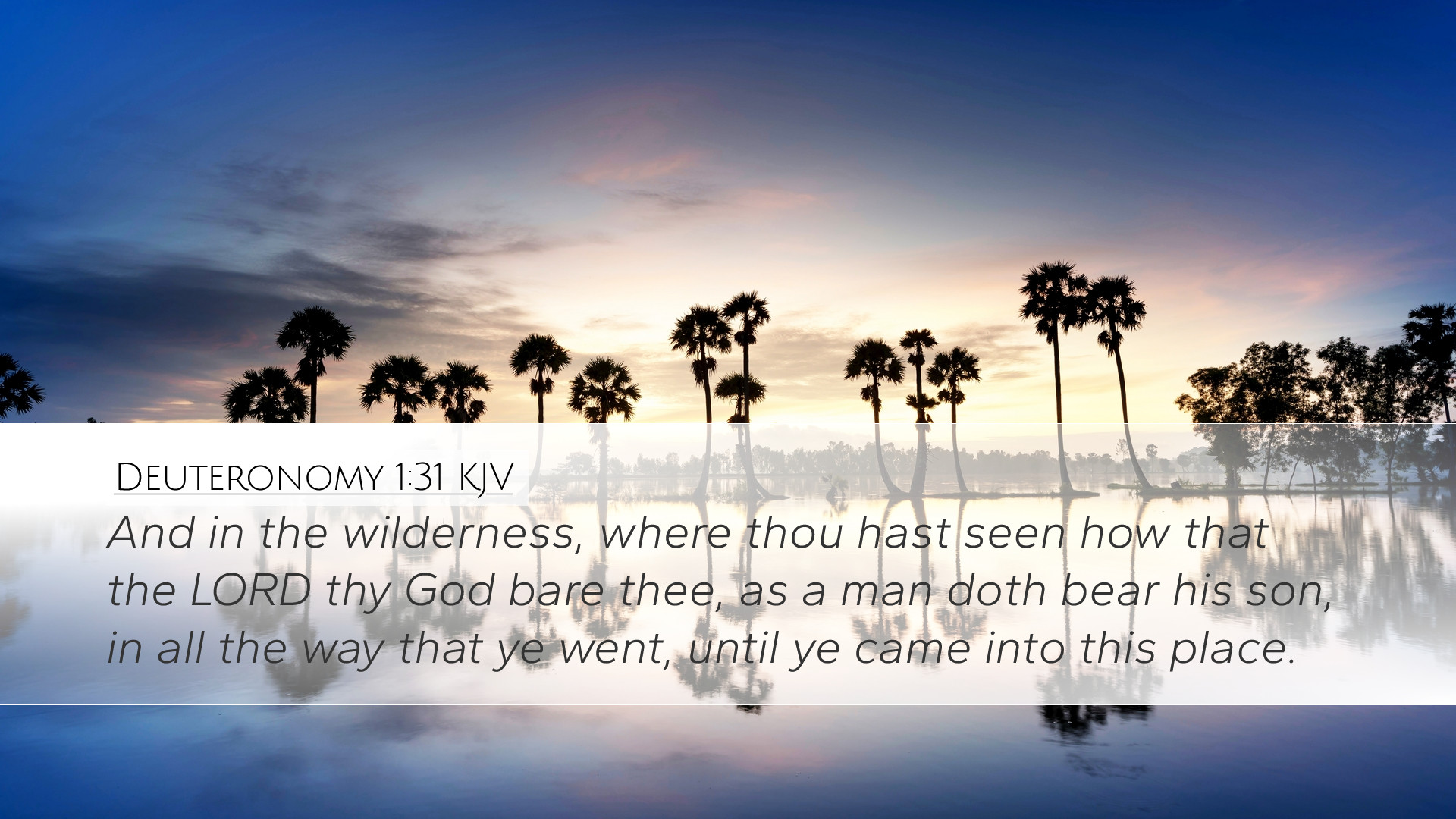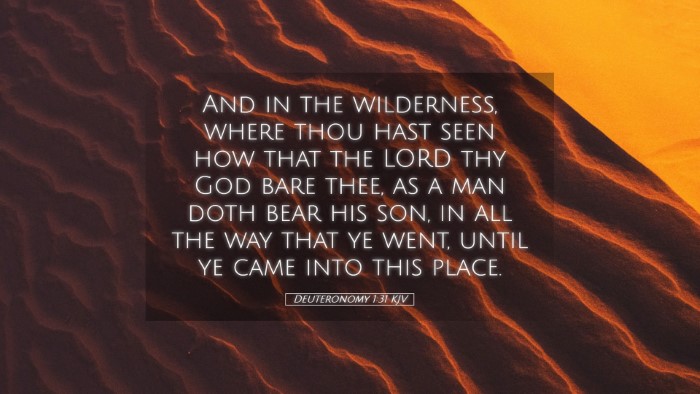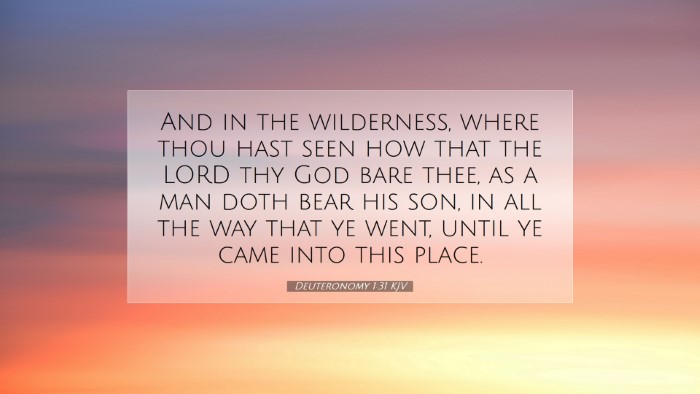Commentary on Deuteronomy 1:31
Verse: "And in the wilderness where thou hast seen how that the Lord thy God bare thee, as a man doth bear his son, in all the way that ye went, until ye came into this place."
Introduction
Deuteronomy 1:31 reflects a profound moment in Israel's history, emphasizing God's intimate relationship with His people during their journey in the wilderness. The image of God bearing His people like a father bears his son illustrates divine love, care, and guidance.
Exegesis and Analysis
This verse is a part of Moses' address to the Israelites, reminiscing about their experiences in the wilderness. Each phrase is packed with theological significance.
God's Providence
Moses highlights God's providence throughout Israel's journey. As noted by Matthew Henry, "The Lord thy God bare thee" signifies not only physical sustenance but also emotional and spiritual nurturing. God was actively involved, showing that His guidance is holistic, addressing both the seen and unseen needs of His people.
The Father-Son Analogy
The phrase "as a man doth bear his son" serves as a powerful analogy. Albert Barnes emphasizes that this paternal imagery not only suggests protection but also companionship. Just as a father carries his son to save him from exhaustion and danger, God similarly leads His people through trials, carrying their burdens.
Learning from the Wilderness
The wilderness experience described in this verse is critical for understanding Israel's journey. Adam Clarke points out that the wilderness symbolizes a period of testing and learning. It is during these challenging times that God's faithfulness is often most prominently displayed. The trials faced were not merely sufferings but lessons to strengthen faith and reliance on God.
Theological Implications
Deuteronomy 1:31 connects deeply with core theological themes.
God's Faithfulness
This verse reassures believers of God's unwavering faithfulness. The journey of the Israelites serves as a metaphor for the spiritual journeys of Christians today. Just as God led His people through difficulties, He continues to guide believers today, reinforcing the promise that He will never leave nor forsake them.
Fatherly Care
The depiction of God as a father emphasizes His desires for a relationship with His people. As noted by Henry, "He carries them in His arms," which signifies a caring relationship, fostering intimacy and trust. This parental care should inspire believers to trust in God's providence in their own lives.
The Journey Towards Promise
This verse is transitional; it points towards the eventual entry into the Promised Land. The wilderness serves as a necessary precursor for the Israelites, an essential journey that prepares them spiritually and morally for the blessings ahead. Clarke explains that understanding the occupation of the Promised Land necessitates the hardships of the wilderness, highlighting that spiritual growth often requires undergoing trials.
Practical Applications
The implications of Deuteronomy 1:31 resonate with contemporary believers, providing numerous avenues for application.
- Trust in God's Guidance: Just as the Israelites relied on God during their journey, modern followers are encouraged to place their trust in divine guidance throughout their lives.
- Recognizing Spiritual Development: The trials individuals face should be viewed as significant opportunities for growth. Challenges may help shape character and strengthen faith.
- Value of Community: Moses' words remind believers of the importance of community in faith journeys. The collective memories of God's faithfulness can encourage and support one another.
- Fatherly Relationship with God: Cultivating a deeper relationship with God as a father figure fosters intimacy, encouraging prayer and reliance on His love and guidance.
Conclusion
Deuteronomy 1:31 encapsulates the essence of Israel’s experience with God during their wilderness wanderings. It portrays a powerful image of divine care and sustenance, reminiscent of a father's love. For pastors, students, theologians, and scholars, this verse serves as a reminder of God's faithful presence and the profound lessons that trials can impart. As believers reflect on their own journeys, they are invited to trust in God’s unfailing guidance, knowing that He bears them through life’s various wilderness moments.


